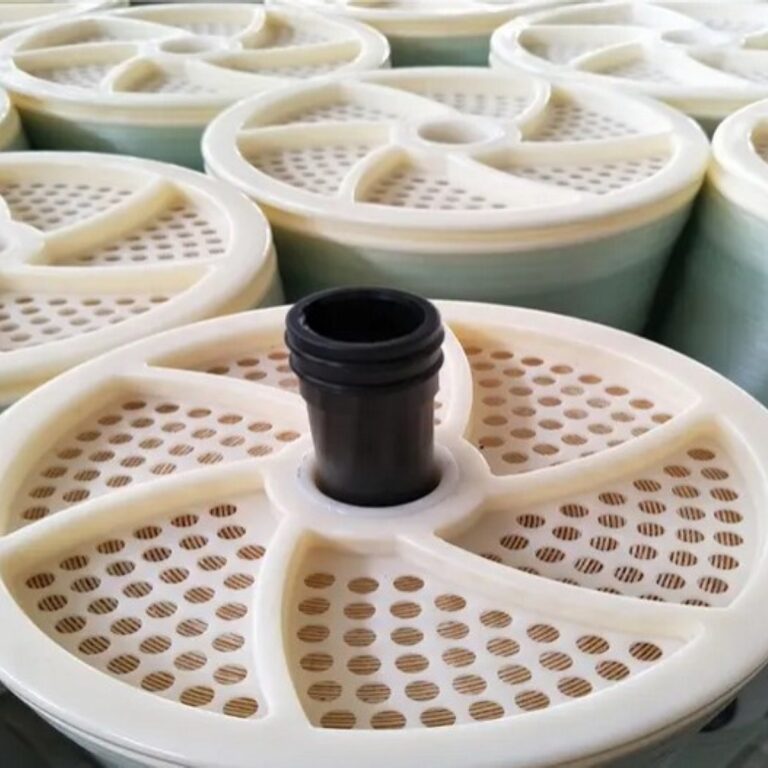Demineralised (deionised) water :
This is water from which the vast majority of dissolved salts and minerals, such as calcium, magnesium, sodium or chlorides, have been removed. This process is usually done by deionisation (ion exchange), reverse osmosis, distillation or a combination of these methods.
Method of obtaining demineralised water:
- Deionisation (ion exchange) - using deionisation resin:
- In this process, water flows through columns with an ion exchange (deionisation) resin, which removes cations (e.g. calcium, magnesium) and anions (e.g. chlorides, sulphates) and replaces them with hydrogen (H⁺) and hydroxide (OH-) ions, which then combine to form pure water. A deionisation (DI) resin is required for this, preferably if the DI resin is of good quality, as this affects the purity of the water, see:
- Reverse osmosis - using RO (Reverse Osmosis) membranes:
- In this process, water is passed through a semi-permeable membrane that retains most dissolved substances, including minerals and impurities, allowing only clean water to pass through the membrane. When choosing a suitable RO membrane, it is important to pay attention to the rejection rates, see:
https://complexsolutions-shop.com/kategoria-produktu/filtry/membrany
- Distillation:
- It involves heating water to its boiling point and then condensing the vapour to separate the water from most of the dissolved substances. However, the process is more energy-intensive than other methods.
Properties of demineralised water:
- Low electrical conductivity: Thanks to the removal of most ions, demineralised water has a very low electrical conductivity, making it ideal for applications in electronics and the chemical industry.
- Lack of minerals: Demineralised water is devoid of minerals, which can make it less palatable compared to drinking water, but this is beneficial in many industrial applications,.
- High water purityThis is essential for telescopic window cleaning, car washes, etc.
When producing demineralised water, it is important to ensure that the deionisation resin and reverse osmosis membranes are replaced regularly. All the necessary components for producing such pure water can be found in our shop.
